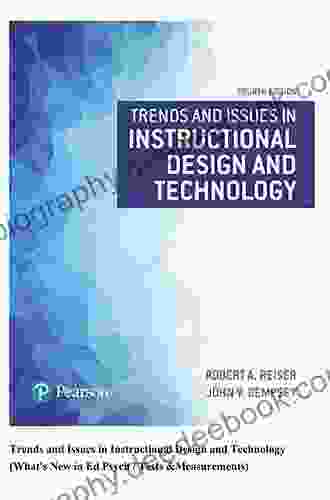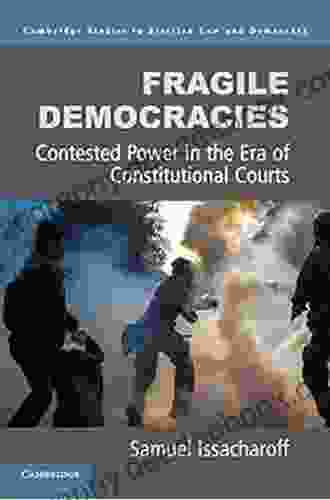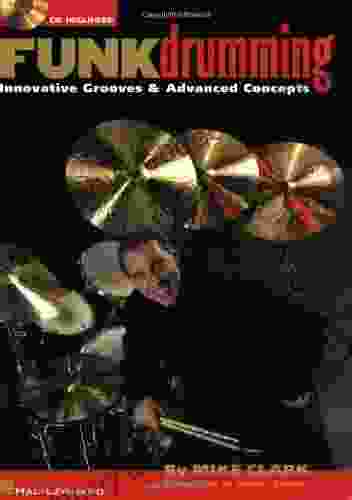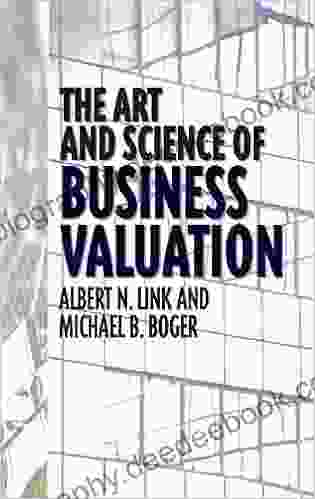Contested Power in the Era of Constitutional Courts: Cambridge Studies in Constitutional Law

The rise of constitutional courts has been one of the most significant developments in the field of law and politics in recent decades. Constitutional courts are courts that have the power to review the constitutionality of laws and government actions. This power gives them a unique role in the constitutional order, as they are able to check the power of the other branches of government and to ensure that the government acts in accordance with the constitution.
4.5 out of 5
| Language | : | English |
| File size | : | 1102 KB |
| Text-to-Speech | : | Enabled |
| Screen Reader | : | Supported |
| Enhanced typesetting | : | Enabled |
| Word Wise | : | Enabled |
| Print length | : | 310 pages |
| X-Ray for textbooks | : | Enabled |
The rise of constitutional courts has had a profound impact on the balance of power between the different branches of government. In many countries, constitutional courts have become the most powerful institution in the state, and they have significantly constrained the ability of the other branches of government to act without their approval. This shift in the balance of power has led to a number of challenges to traditional understandings of power and its exercise.
One of the most significant challenges to traditional understandings of power is the fact that constitutional courts are not elected by the people. This means that they are not directly accountable to the people, and they can therefore act in ways that are not in the best interests of the people. This lack of accountability is a potential threat to democracy, as it can lead to constitutional courts becoming unaccountable and unresponsive to the needs of the people.
Another challenge to traditional understandings of power is the fact that constitutional courts are often unelected and unrepresentative. This means that they are not necessarily representative of the diversity of society, and they can therefore make decisions that are not in the best interests of all citizens. This lack of representativeness is a potential threat to the rule of law, as it can lead to constitutional courts making decisions that are not based on the law but on their own personal beliefs and values.
The rise of constitutional courts is a significant challenge to traditional understandings of power and its exercise. Constitutional courts have the power to check the power of the other branches of government, and they can therefore play a significant role in shaping the balance of power in society. However, the fact that constitutional courts are not elected by the people and are often unelected and unrepresentative poses a potential threat to democracy and the rule of law.
In order to address these challenges, it is important to ensure that constitutional courts are accountable to the people and that they are representative of the diversity of society. This can be done through a number of mechanisms, such as requiring constitutional courts to be elected by the people or by requiring them to be appointed by a diverse and representative body. It is also important to ensure that constitutional courts are subject to judicial review, so that their decisions can be challenged in court if they are found to be unconstitutional.
By taking these steps, we can help to ensure that constitutional courts are accountable to the people and that they are representative of the diversity of society. This will help to protect democracy and the rule of law, and it will ensure that constitutional courts continue to play a positive role in shaping the balance of power in society.
Case Studies
The following case studies illustrate the different ways in which constitutional courts have shaped the balance of power in different countries around the world.
- Marbury v. Madison (1803): In this landmark case, the Supreme Court of the United States established the principle of judicial review. This principle gives the Supreme Court the power to declare laws unconstitutional, and it has significantly constrained the ability of the other branches of government to act without the Court's approval.
- Brown v. Board of Education (1954): In this case, the Supreme Court of the United States ruled that racial segregation of public schools was unconstitutional. This decision was a major victory for the civil rights movement, and it helped to pave the way for the desegregation of public schools in the United States.
- Obergefell v. Hodges (2015): In this case, the Supreme Court of the United States ruled that same-sex couples have the right to marry. This decision was a major victory for the LGBT rights movement, and it helped to pave the way for the legalization of same-sex marriage in the United States.
These case studies illustrate the different ways in which constitutional courts can shape the balance of power in society. Constitutional courts can check the power of the other branches of government, they can protect the rights of minorities, and they can promote social change. As the power of constitutional courts continues to grow, it is important to ensure that they are accountable to the people and that they are representative of the diversity of society. This will help to protect democracy and the rule of law, and it will ensure that constitutional courts continue to play a positive role in shaping the balance of power in society.
The rise of constitutional courts is a significant challenge to traditional understandings of power and its exercise. Constitutional courts have the power to check the power of the other branches of government, and they can therefore play a significant role in shaping the balance of power in society. However, the fact that constitutional courts are not elected by the people and are often unelected and unrepresentative poses a potential threat to democracy and the rule of law.
In order to address these challenges, it is important to ensure that constitutional courts are accountable to the people and that they are representative of the diversity of society. This can be done through a number of mechanisms, such as requiring constitutional courts to be elected by the people or by requiring them to be appointed by a diverse and representative body. It is also important to ensure that constitutional courts are subject to judicial review, so that their decisions can be challenged in court if they are found to be unconstitutional.
By taking these steps, we can help to ensure that constitutional courts are accountable to the people and that they are representative of the diversity of society. This will help to protect democracy and the rule of law, and it will ensure that constitutional courts continue to play a positive role in shaping the balance of power in society.
4.5 out of 5
| Language | : | English |
| File size | : | 1102 KB |
| Text-to-Speech | : | Enabled |
| Screen Reader | : | Supported |
| Enhanced typesetting | : | Enabled |
| Word Wise | : | Enabled |
| Print length | : | 310 pages |
| X-Ray for textbooks | : | Enabled |
Do you want to contribute by writing guest posts on this blog?
Please contact us and send us a resume of previous articles that you have written.
 Novel
Novel Page
Page Chapter
Chapter Text
Text Story
Story Genre
Genre Reader
Reader Library
Library E-book
E-book Magazine
Magazine Newspaper
Newspaper Sentence
Sentence Shelf
Shelf Glossary
Glossary Synopsis
Synopsis Manuscript
Manuscript Tome
Tome Bestseller
Bestseller Library card
Library card Narrative
Narrative Biography
Biography Autobiography
Autobiography Dictionary
Dictionary Thesaurus
Thesaurus Resolution
Resolution Librarian
Librarian Catalog
Catalog Borrowing
Borrowing Archives
Archives Research
Research Scholarly
Scholarly Lending
Lending Academic
Academic Reading Room
Reading Room Literacy
Literacy Study Group
Study Group Storytelling
Storytelling Book Club
Book Club Theory
Theory Textbooks
Textbooks Ron D Snee
Ron D Snee Neel Mukherjee
Neel Mukherjee Egypt S Bush
Egypt S Bush Karl Marlantes
Karl Marlantes Kim Canavan
Kim Canavan Patrick Collier
Patrick Collier Tony Lewis
Tony Lewis Don Cusic
Don Cusic Lasse Rouhiainen
Lasse Rouhiainen C Hallman
C Hallman Mike Berenstain
Mike Berenstain Andrew A Bonar
Andrew A Bonar Michael M Carter
Michael M Carter Madeleine Reeves
Madeleine Reeves James F Fisher
James F Fisher Jessica Jackley
Jessica Jackley J L Hickey
J L Hickey Ellen Israel Goldberg
Ellen Israel Goldberg Ron Fowler
Ron Fowler Arielle Crowell
Arielle Crowell
Light bulbAdvertise smarter! Our strategic ad space ensures maximum exposure. Reserve your spot today!

 Demetrius CarterComputational Advances In Bio And Medical Sciences: Unlocking the Secrets of...
Demetrius CarterComputational Advances In Bio And Medical Sciences: Unlocking the Secrets of... Alexandre DumasFollow ·12.8k
Alexandre DumasFollow ·12.8k Edward BellFollow ·16.1k
Edward BellFollow ·16.1k Alex FosterFollow ·19.4k
Alex FosterFollow ·19.4k Jonathan FranzenFollow ·9.5k
Jonathan FranzenFollow ·9.5k William PowellFollow ·7.3k
William PowellFollow ·7.3k Cameron ReedFollow ·11k
Cameron ReedFollow ·11k Eli BrooksFollow ·4.9k
Eli BrooksFollow ·4.9k Dan BrownFollow ·9.5k
Dan BrownFollow ·9.5k

 Franklin Bell
Franklin BellSecond Edition Pdf No Audio: A Comprehensive Guide to the...
The Second Edition...

 Jackson Blair
Jackson BlairTrends and Issues in Instructional Design and Technology
Instructional...

 Mario Vargas Llosa
Mario Vargas LlosaEnchanting Enigma Variations and Triumphant Pomp and...
The Enigma Variations: A...

 Dwight Blair
Dwight BlairTime Between Us: A Novel That Explores the Power of...
Prepare to be swept away by...
4.5 out of 5
| Language | : | English |
| File size | : | 1102 KB |
| Text-to-Speech | : | Enabled |
| Screen Reader | : | Supported |
| Enhanced typesetting | : | Enabled |
| Word Wise | : | Enabled |
| Print length | : | 310 pages |
| X-Ray for textbooks | : | Enabled |














